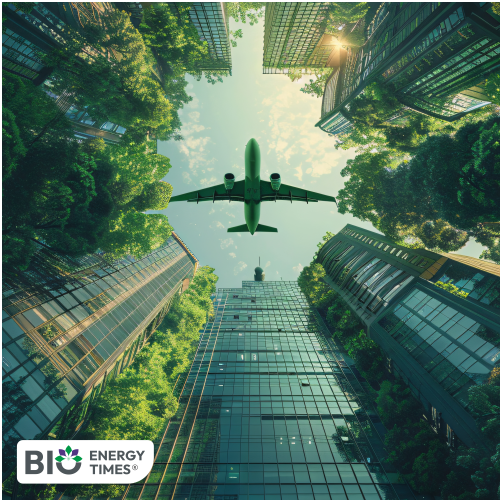Korean Air will increase the use of domestically produced sustainable aviation fuel (SAF) on its commercial flight routes, the airline announced Monday, reports Korea JoongAng Daily.
SAF is a type of aircraft biofuel made from renewable sources such as waste, plants, animals, and agricultural residues. It can reduce carbon emissions by up to 80 percent compared to conventional jet fuel.
Since August 2024, Korean Air has been the first domestic airline to operate a commercial route using locally produced SAF, flying from Incheon to Haneda Airport in Tokyo. Following the completion of the trial period, the airline will now use SAF on additional routes, including Incheon to Kobe and Gimpo to Osaka, through the end of 2026.
On the same day, HD Hyundai Oilbank announced it will supply SAF for the Incheon-Kobe route, covering approximately 90 flights. In June 2024, the company became Korea’s first SAF exporter to Japan. GS Caltex will provide fuel for the Gimpo-Osaka route. Both companies produce SAF from used cooking oil and have received certification under the International Civil Aviation Organization’s Carbon Offsetting and Reduction Scheme for International Aviation (CORSIA).
Korean Air said it will continue to pursue sustainability initiatives and lead the domestic aviation industry toward carbon neutrality.
Meanwhile, Korea’s Ministry of Trade, Industry and Energy announced plans to mandate the use of blended SAF starting in 2027, with a target to reduce international aviation carbon emissions by 5 percent by 2030. Europe and Japan have already implemented SAF blending requirements.














